
Frugal Living Archives Mama on the Homestead Homemade antibacterial
Key Steps: When making DIY disinfectant products use 100 proof vodka or 70% isopropyl rubbing alcohol. Use essential oils like eucalyptus for their antibacterial properties. Add alcohol, vinegar and essential oils to a bottle and shake well to create a homemade sanitiser spray. Avoid using this cleaner on granite or marble surfaces.

Powerful DIY Disinfectant Spray that's AllNatural (Homemade Lysol
1 vitamin E capsule 10 drops thieves oil 2 tablespoons aloe vera gel Distilled water Instructions Add the alcohol or vodka to a 3 ounce spray bottle. Use a pin to prick the vitamin E capsule and squeeze 6 drops of the vitamin E oil into the bottle. Add the thieves oil and aloe vera. Top with the water. Shake well and use as a hand spray.

Diy Antibacterial Spray For Skin Best Idea DIY
1. Shake well before each use to mix all ingredients together. 2. Spray surfaces from at least 6 inches away using the mist setting of your spray bottle. 3. Allow to sit for one to two minutes. 4. Wipe clean with a clean cloth or paper towel. Never use the same cloth to wipe away separate surfaces to avoid cross contamination. We Recommend DIY

Homemade "Lysol" Disinfecting Cleaning Spray One Essential Community
Use your homemade spray within 24 hours. While Clorox states that undiluted bleach can last six to 12 months, diluted bleach starts to break down after 24 hours and loses potency.. Thyme essential oil has antibacterial and antimicrobial properties. What You'll Need. 20 drops of thyme essential oil* Rubbing alcohol (70 percent to 99 percent.

DIY Disinfectant Spray Easy and budget friendly disinfectant
To use this homemade disinfectant, either spray the toys with undiluted peroxide, wipe them down with a peroxide-soaked cloth, or give them a good soak in a sink filled with water and some peroxide for at least 30 minutes. Use your judgement to decide how much to dilute here. 4. Post-Cold or Flu. After a nasty cold or flu has passed through.
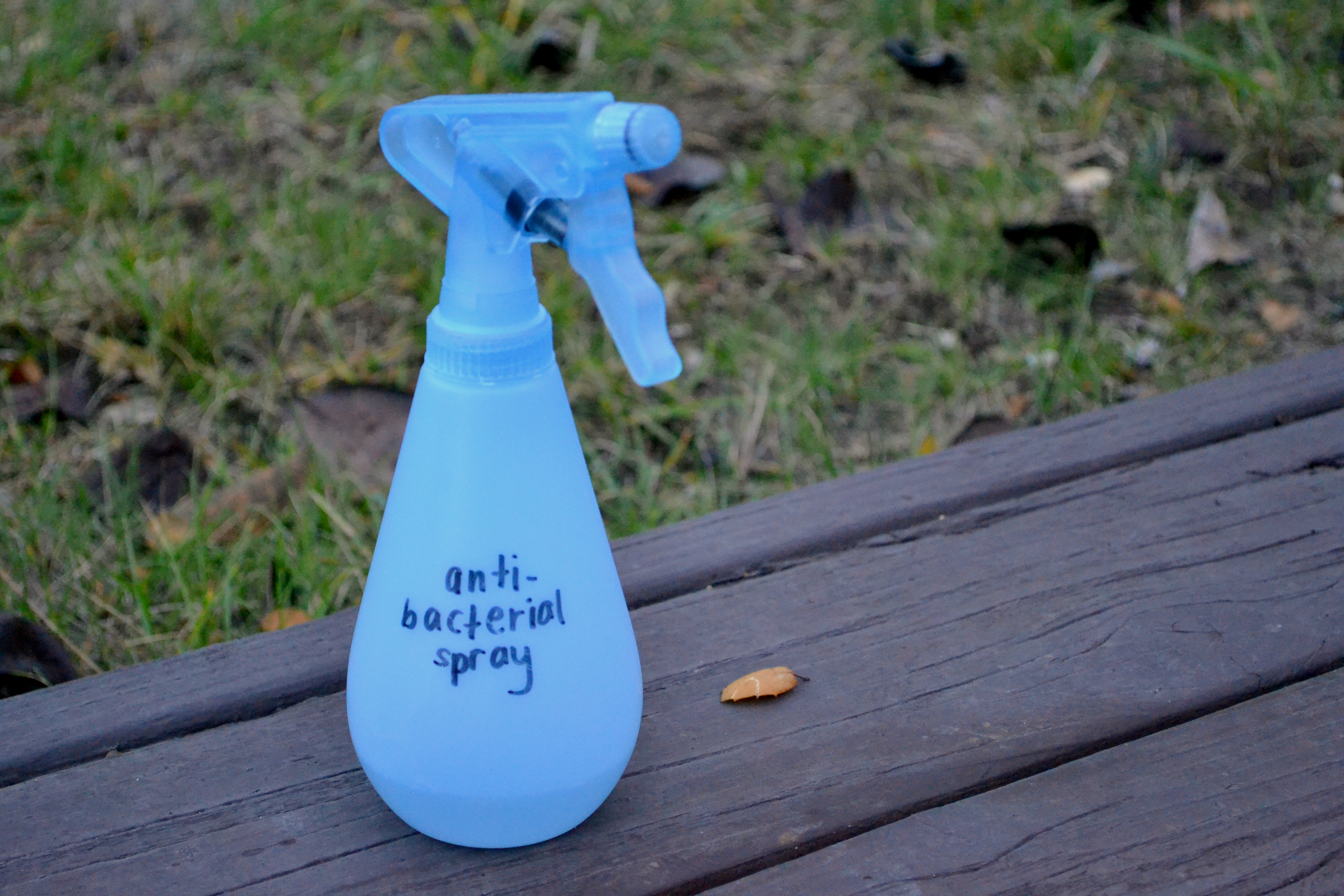
Homemade Antibacterial Spray A Growing Home Homemade Antibacterial
The Recipe There are a few recipes for DIY antibacterial spray for skin out there. I'm going to share my favorite one with you today. This homemade spray is easy to make and only requires a few ingredients. Plus, it's gentle enough to use on your face and body. To make this antibacterial spray, you'll need: The following contains affiliate links.

Homemade Disinfectant Spray (3Ingredients) Unsophisticook
Tea tree oil is a natural antibiotic, which means it's antibacterial and kills germs. Tea tree oil can be used on pets and children safely, so don't worry about using it around them. Add the ½ teaspoon of tea tree oil to ¼ cup water in a spray bottle (or 4 cups of purified water). Shake well before each use. Spray the disinfectant onto.

Homemade Antibacterial Cleaning Spray Whimsical Mumblings
7 Highly Effective Disinfectant Spray Recipes Home >> Cleaning >> Material >> Disinfecting Homemade Disinfectant Spray Last Updated: January 4, 2024 by Aurora Hatfield Reviewed by Cassidy Finley - Fact checked by Elaine Brandon If you want your home to sparkle, then finding an effective disinfectant is essential.

How to Make a 4Ingredient Homemade AllPurpose Spray Essential oils
In a 16 oz spray bottle, add peels of 2-3 lemons. Fill jar with with 1.5 cups of vodka (120 proof or higher). Ideally, let lemon peels sit it the vodka for 1-2 weeks to get the lemon oil from the peels. If you don't have the time, you can start using right away. Shake well and put the spray nozzle on.
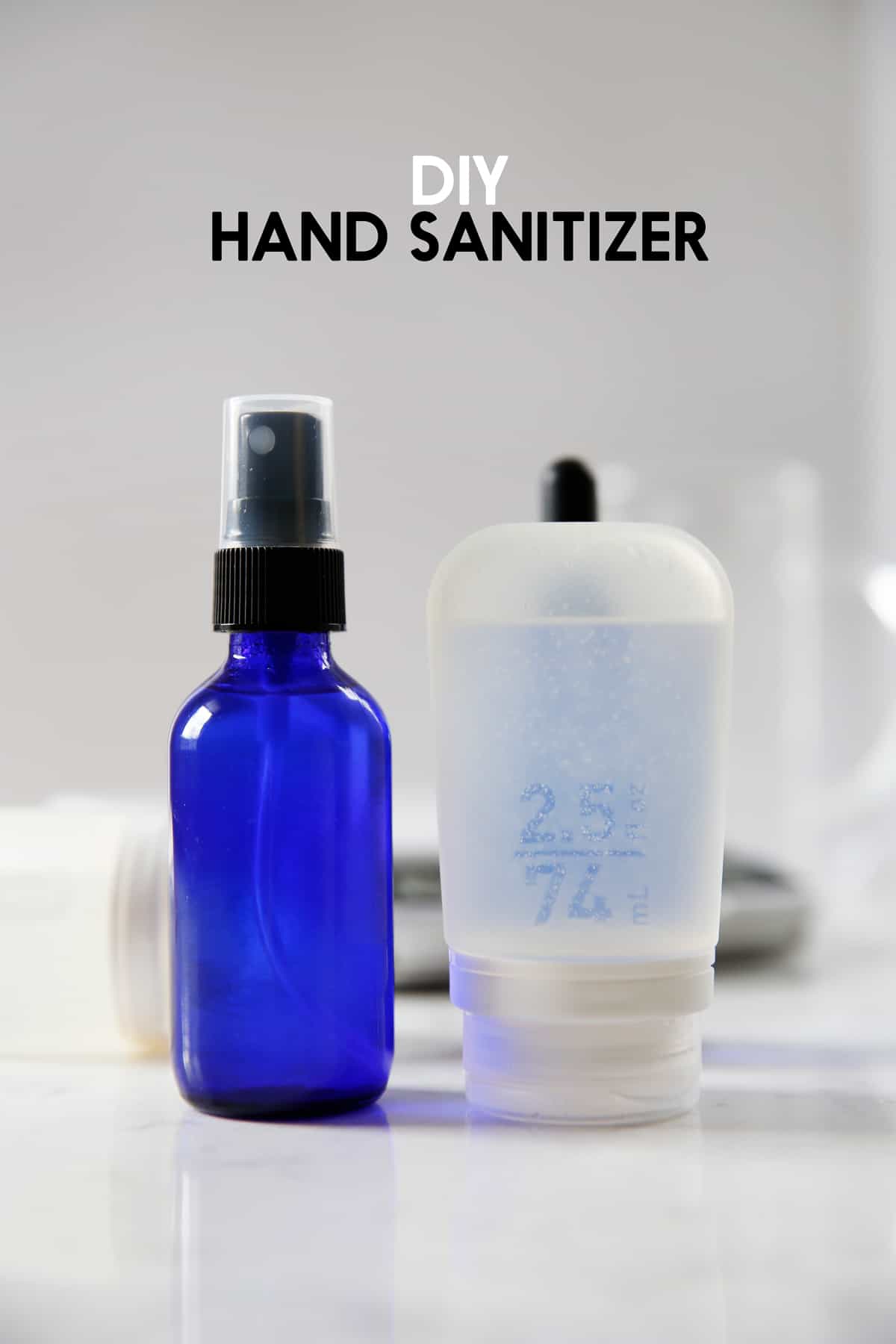
Diy Antibacterial Spray With Rubbing Alcohol / 3 Ways To Make A Natural
How to make homemade disinfectant spray: Step 1: Add your water, vodka or alcohol, and peroxide to a glass measuring cup. Whisk together gently. Steps 2-3: Add in your essential oils. Gently whisk all the ingredients together until well incorporated. Step 4: Using a funnel, add the mixture into your bottle, stopping about ½" from the top.
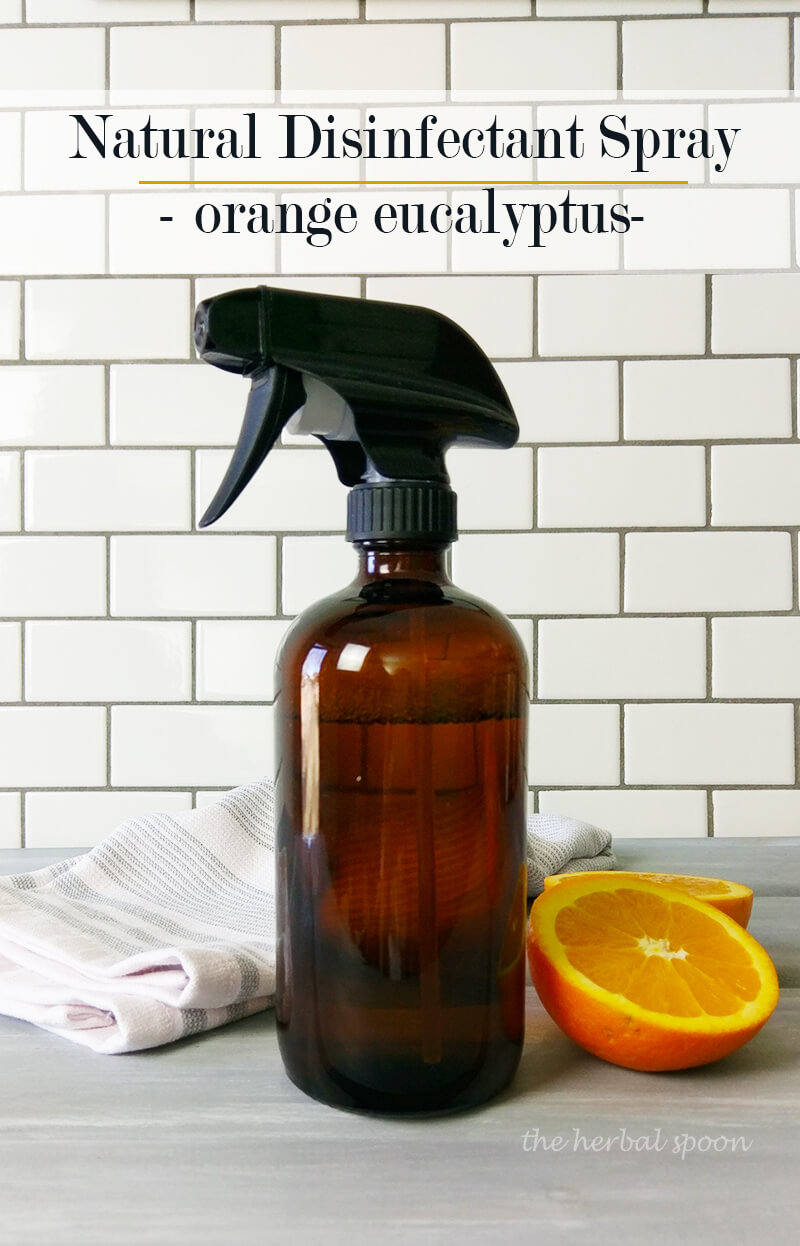
How to Make a Simple Yet Powerful Disinfectant Spray The Herbal Spoon
Make a DIY Antibacterial Cleaner with White Vinegar Using Hydrogen Peroxide to Make a Natural Antibacterial Cleaner Make a Natural Antibacterial Spray with Tea Tree Oil Using Lemons to Make Antibacterial Cleaner Making an Antibacterial Floor Cleaner with Castile Soap How to Make Homemade Antibacterial Hand Soap

DIY Disinfectant Spray Easy and budget friendly disinfectant
DIY Antibacterial Spray Ingredients. 4oz 70% isopropyl alcohol. 3 drops lavender essential oil. 3 drops lemon essential oil. 3 drops wild orange essential oil. 3 drops eucalyptus essential oil. 3 drops tea tree essential oil. Distilled water. 16oz glass spray bottle (or PET plastic)
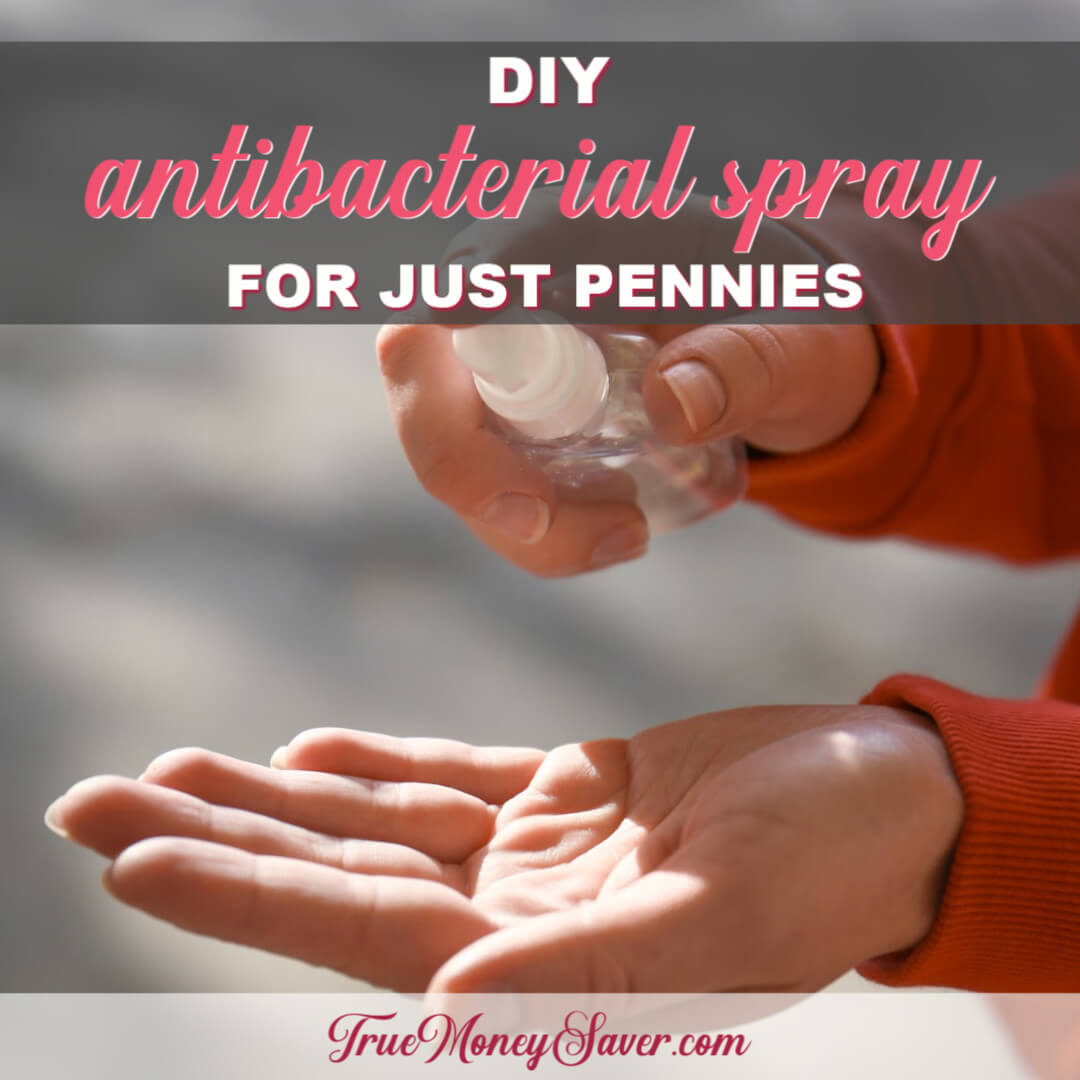
The Best Hand Antibacterial Spray You Need To Make Now
Directions: Combine all ingredients in a spray bottle. Shake well. To clean: spray the surface and wipe with a damp microfiber cloth. To disinfect: spray pre-cleaned surfaces until they are visibly wet, then wait 5 minutes Rinse the cleaner off of surfaces by using a fresh, damp cloth or damp paper towels.
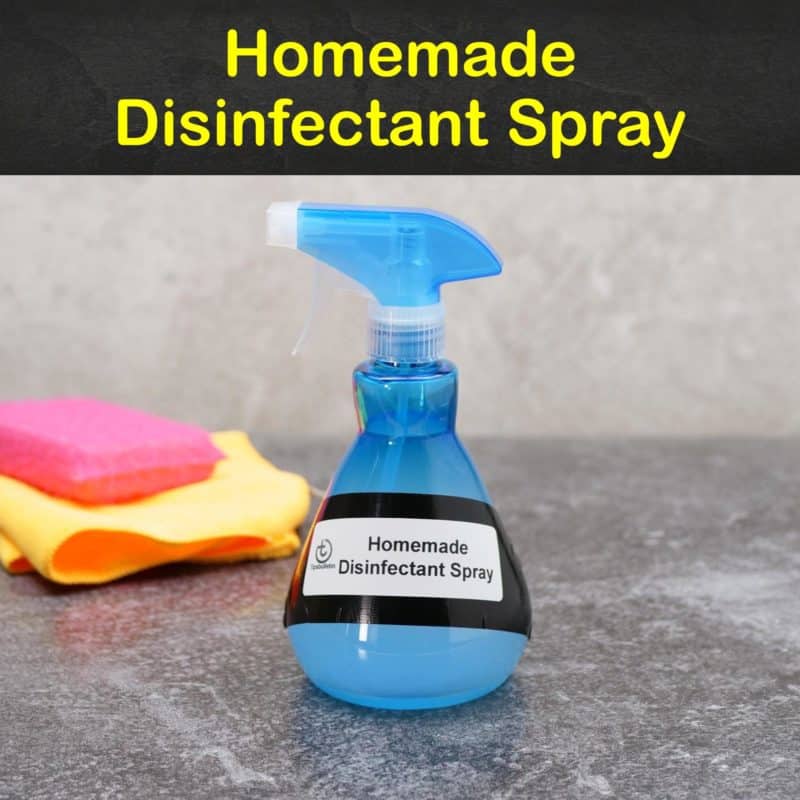
7 Highly Effective Disinfectant Spray Recipes
1. All-Natural Disinfecting Wipes. To make your own disinfecting wipes, just soak paper towels in the following ingredients: 2 cups warm water, 1 tablespoon liquid soap, 1 cup rubbing alcohol. To make sure your wipes are truly disinfecting, double check that your rubbing alcohol is at least 70% alcohol. 2. Natural All-Purpose Disinfecting Spray.
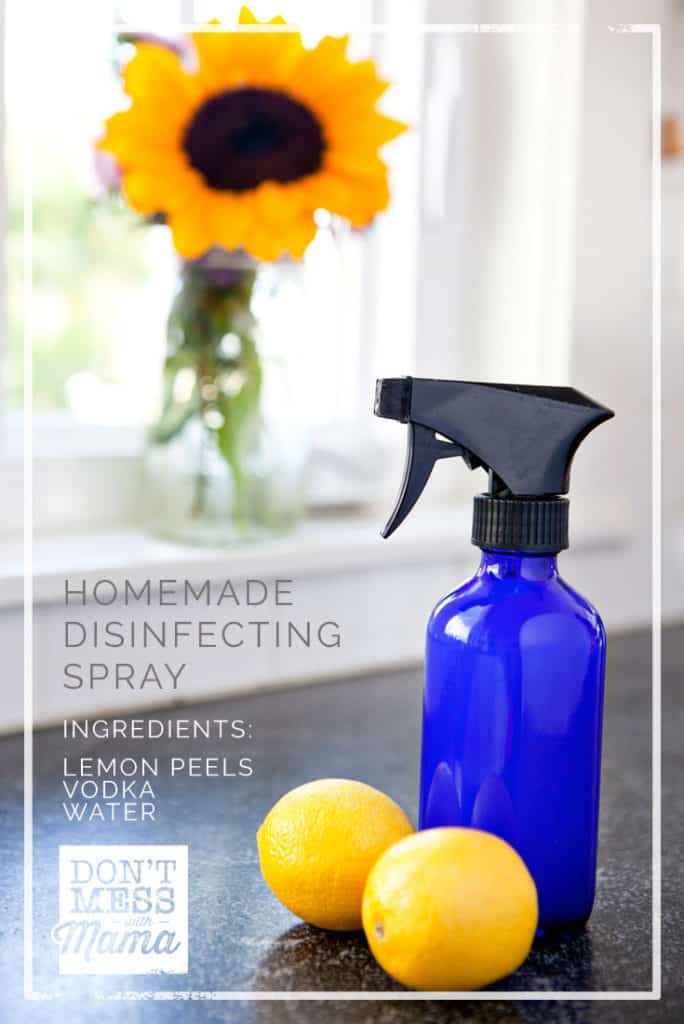
DIY Disinfectant Spray (Homemade Lysol) Don't Mess with Mama
1 Use basic undiluted rubbing alcohol. Choose a product that has at least 70% alcohol content, or else it won't effectively kill bacteria or viruses. Put the rubbing alcohol in a spray bottle so you easily apply it to any surface. This cleaning solution should be effective against coronavirus.

Diy Antibacterial Spray For Fabric Easy DIY
It's convenient, quick, and combines powerful essential oils with proven recommended disinfectants like hydrogen peroxide or alcohol. I based this recipe on careful research from the CDC, EPA, Stanford University, and other sources, but of course I cannot make any claims as to its effectiveness on certain viruses or bacteria.